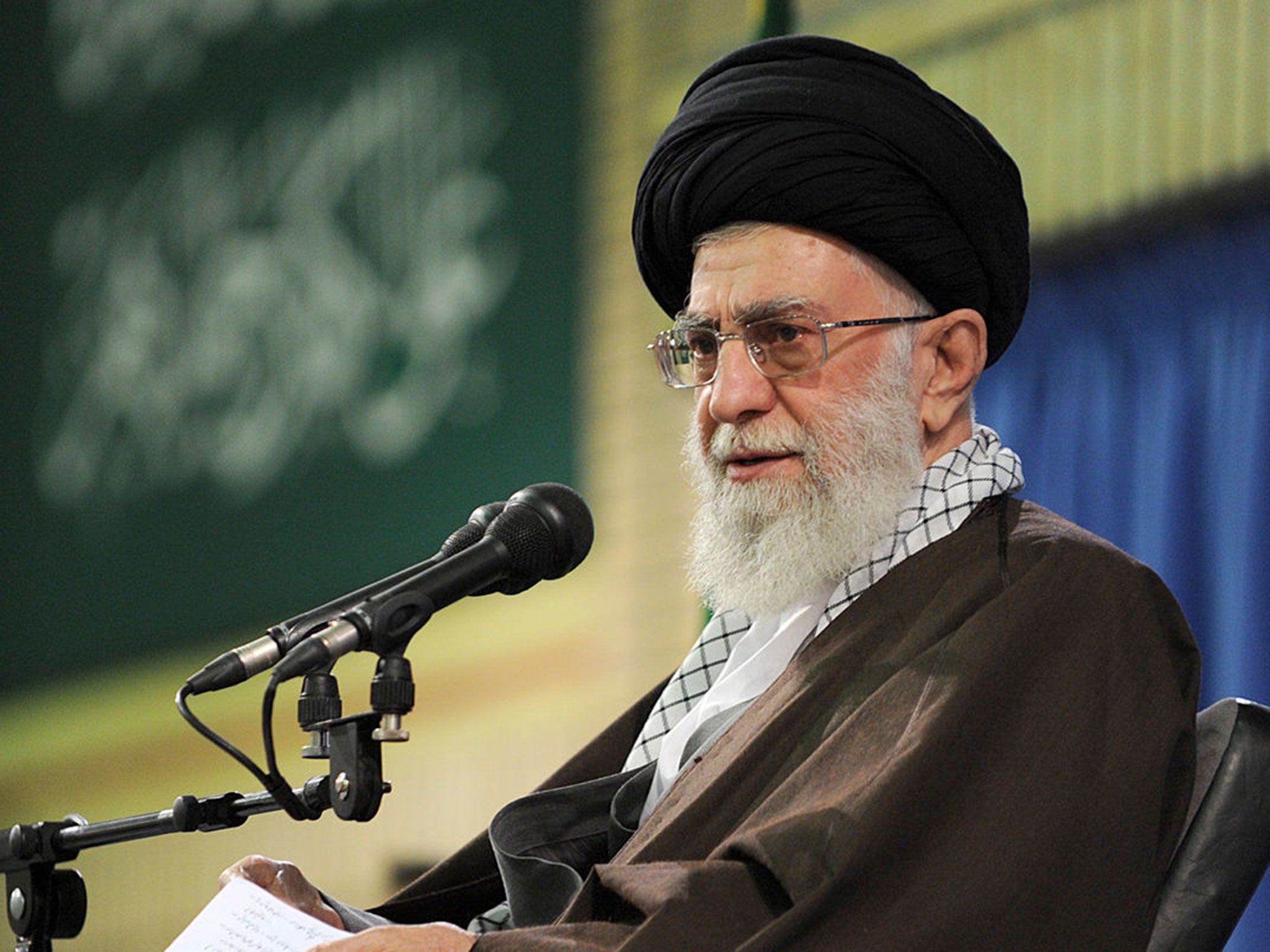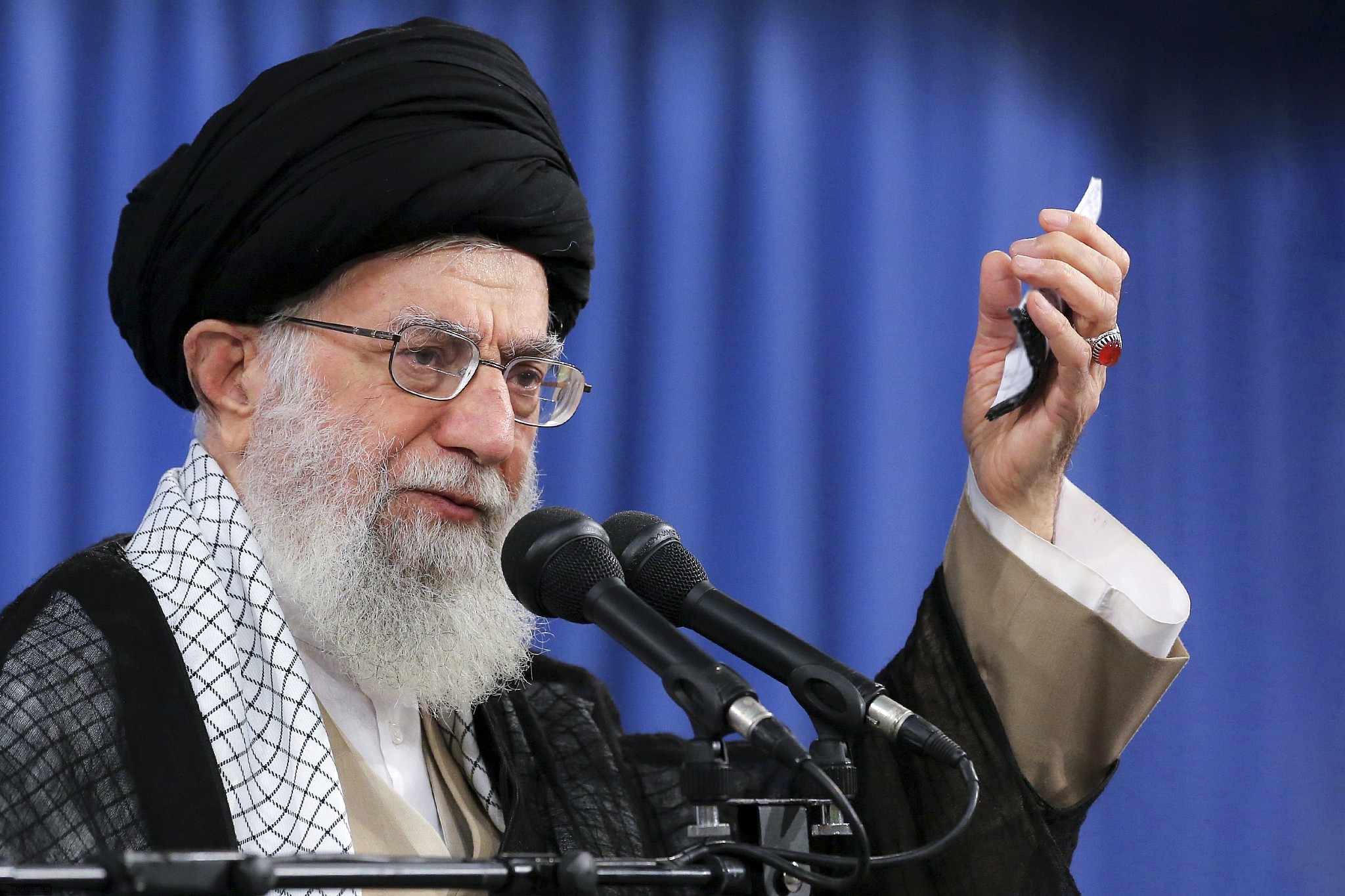Early Life and Education: Ali Khamenei

Ali Khamenei was born on 19 July 1939, in Mashhad, Iran. His father, Ayatollah Sayyid Javad Khamenei, was a renowned religious scholar and theologian. His mother, Khadijeh Mirdamadi, was a devout and pious woman. Khamenei’s family was deeply involved in religious activities, and he was exposed to Islamic teachings from a young age.
Khamenei began his education at a traditional religious school in Mashhad. He later moved to Najaf, Iraq, to study under Grand Ayatollah Abul-Qasim al-Khoei. In Najaf, Khamenei immersed himself in Islamic jurisprudence, philosophy, and theology. He also became involved in political activism, opposing the rule of the Shah of Iran, Mohammad Reza Pahlavi.
Ali Khamenei, the Supreme Leader of Iran, is a powerful figure who oversees the country’s political and religious affairs. His influence extends beyond the borders of Iran, and he has been a vocal critic of Western powers. In recent years, Khamenei has been seen riding in a presidential helicopter , a symbol of his authority and the strength of the Iranian regime.
Khamenei’s presence in the helicopter serves as a reminder of his unwavering commitment to the Iranian people and his determination to defend the country’s interests.
Political Activism and Revolutionary Involvement
Ali Khamenei’s political activism emerged during his university years. He actively participated in the Iranian Revolution, joining the opposition movement against the Pahlavi regime. Khamenei’s charismatic speeches and leadership qualities played a significant role in mobilizing the masses and galvanizing support for the revolution.
Opposition Movement
As a prominent figure within the opposition movement, Khamenei actively engaged in organizing protests, disseminating revolutionary ideas, and advocating for the overthrow of the Shah’s regime. His persuasive speeches and written works resonated with the Iranian populace, contributing to the growing momentum of the revolution.
Overthrow of the Pahlavi Regime
Khamenei’s contributions to the Iranian Revolution culminated in the overthrow of the Pahlavi regime in 1979. His role in mobilizing the masses, inspiring the opposition movement, and advocating for revolutionary change earned him widespread recognition and respect among the Iranian people.
Post-Revolutionary Leadership

After the Iranian Revolution in 1979, Ali Khamenei emerged as a key figure in the newly established Islamic Republic. He served as the President of Iran from 1981 to 1989, playing a pivotal role in shaping the country’s post-revolutionary political landscape.
During his presidency, Khamenei faced numerous challenges, including the Iran-Iraq War (1980-1988) and economic sanctions imposed by the United States. Despite these obstacles, he made several important decisions that left a lasting impact on Iran.
Domestic Policies
Khamenei’s domestic policies focused on strengthening the Islamic character of the Iranian state and consolidating the power of the clergy. He implemented measures to enforce Islamic law, including mandatory hijab for women and the establishment of religious courts. Additionally, he oversaw the nationalization of banks and industries, bringing them under the control of the government.
Foreign Policy, Ali khamenei
In terms of foreign policy, Khamenei maintained a strong anti-Western stance, particularly towards the United States. He supported militant groups in the Middle East and pursued a nuclear program that raised international concerns. Despite his hardline approach, Khamenei also engaged in diplomatic efforts, including negotiations with Western powers over the Iran-Iraq War and the nuclear issue.
Supreme Leadership
Ali Khamenei’s tenure as the Supreme Leader of Iran since 1989 has been marked by his significant religious and political authority, as well as his profound influence on domestic and foreign policy.
Religious Authority
Khamenei’s religious credentials as a Shiite cleric and Grand Ayatollah have bestowed upon him immense spiritual authority within Iran. He is widely regarded as an expert in Islamic jurisprudence and theology, and his rulings on religious matters carry great weight.
Political Authority
As Supreme Leader, Khamenei holds the highest political office in Iran, with ultimate authority over all branches of government. He is responsible for appointing and dismissing key officials, including the president, and has the power to veto legislation. Khamenei’s political influence extends beyond Iran’s borders, as he plays a significant role in shaping the country’s foreign policy and regional alliances.
Domestic Policy
Under Khamenei’s leadership, Iran has experienced significant economic growth and social development. However, his tenure has also been marked by political repression and human rights abuses. Khamenei has cracked down on dissent and opposition, leading to the imprisonment of numerous activists and journalists.
Ali Khamenei, Iran’s Supreme Leader, is a controversial figure. Many questions surround his health and even his life, with rumors circulating about his possible demise. To separate fact from fiction, it’s crucial to delve into the latest updates and investigate the truth behind the claims.
Whether he is alive or dead , Khamenei’s legacy will continue to shape Iran’s political landscape for years to come.
Foreign Policy, Ali khamenei
Khamenei has pursued a confrontational foreign policy, particularly towards the United States and its allies. He has supported militant groups in the Middle East and has been accused of sponsoring terrorism. Khamenei has also played a key role in Iran’s nuclear program, which has been a source of tension with the international community.
Ali Khamenei, Iran’s Supreme Leader, is one of the most influential figures in the Middle East. He has been in power since 1989, and his health has been the subject of much speculation. Some have questioned whether he is still alive, but there is no evidence to support these claims.
Is Iran’s President Alive? Khamenei has made several public appearances in recent months, and he appears to be in good health.
Religious Beliefs and Ideological Stance
Ali Khamenei is a devout Shia Muslim, and his religious beliefs have a profound impact on his leadership and political ideology. He adheres to the Twelver Shia tradition, which holds that the authority of the Islamic community rests with the twelve Imams, who are believed to be the successors of the Prophet Muhammad. Khamenei’s interpretation of Islam emphasizes the importance of clerical authority and the role of the ulama (Islamic scholars) in guiding society.
Interpretation of Islamic Law
Khamenei’s interpretation of Islamic law is based on the concept of velayat-e faqih, or “Guardianship of the Islamic Jurist.” This doctrine holds that the supreme authority in an Islamic state should be held by a qualified Islamic jurist, who is responsible for interpreting and enforcing Islamic law. Khamenei believes that the Supreme Leader of Iran is the ultimate guardian of the Islamic faith and the custodian of the Islamic Revolution. His interpretation of Islamic law has implications for various aspects of Iranian society, including politics, economics, and social affairs.
Foreign Policy and International Relations
Khamenei’s foreign policy is guided by his belief in the necessity of an independent Iran and his opposition to Western influence in the region. He emphasizes the importance of self-reliance and the rejection of foreign interference in Iran’s internal affairs.
Khamenei has been a vocal critic of the United States and Israel, and he has supported resistance movements in the Middle East, including Hezbollah in Lebanon and Hamas in Palestine. He has also called for the destruction of Israel and the overthrow of the Saudi monarchy.
Relations with Other Countries
Khamenei has maintained close relations with Russia and China, which he sees as strategic partners in countering Western influence. He has also strengthened ties with other countries in the region, such as Syria and Iraq.
Khamenei has been critical of the West’s involvement in the Middle East, and he has accused the United States of destabilizing the region through its military interventions. He has also criticized the West’s support for Israel, which he sees as a threat to the security of the region.
Legacy and Impact
Ali Khamenei’s leadership has left an enduring mark on Iran and the wider region. His legacy will likely be debated for years to come, with some viewing him as a visionary leader who guided Iran through turbulent times, while others criticize his authoritarian rule and suppression of dissent.
Under Khamenei’s leadership, Iran has become a regional power with significant influence in the Middle East. He has also overseen Iran’s nuclear program, which has been a source of tension with the West. However, Khamenei’s rule has also been marked by economic challenges, human rights abuses, and the suppression of political opposition.
Challenges and Opportunities
The challenges facing Iran under Khamenei’s leadership are numerous. The country is facing economic stagnation, high unemployment, and a growing gap between rich and poor. Iran is also facing significant environmental challenges, including water scarcity and air pollution.
Despite these challenges, there are also opportunities for Iran under Khamenei’s leadership. The country has a young and educated population, and it has a rich cultural heritage. Iran also has a strategic location at the crossroads of Asia and Europe.